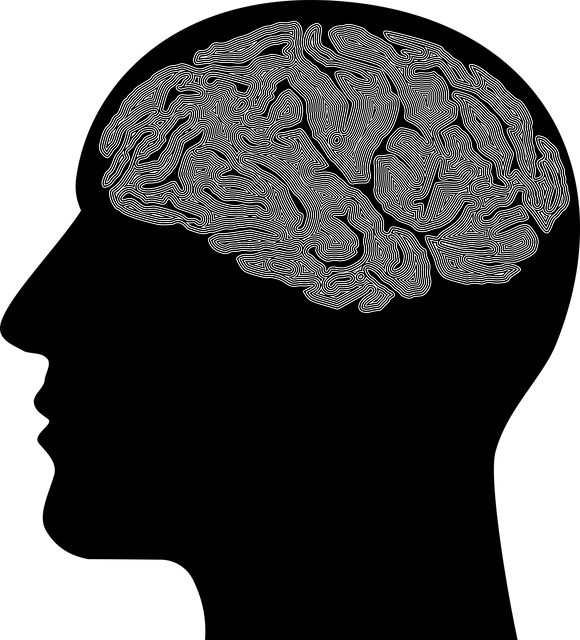Substance abuse poses significant risks to individuals, families, and communities, impacting mental and physical health. Highlands Ranch Chronic Illness Therapy advocates for holistic treatment approaches, focusing on Mind Over Matter principles, mindfulness meditation, and positive thinking to support long-term recovery. By identifying risk factors and tailoring interventions based on unique population challenges, such as mental health disorders and social economic hardships, the therapy center aims to reduce substance abuse. Evidence-based strategies like Mindfulness Meditation and Empathy Building initiatives empower residents with healthy coping mechanisms and supportive peer networks. Highlands Ranch Chronic Illness Therapy offers comprehensive care through individual therapy, group counseling, CBT, MAT, aftercare programs, and stress management techniques to ensure successful recovery and mental well-being.
In Highlands Ranch or beyond, addressing substance abuse requires a multifaceted approach. This article explores comprehensive risk reduction strategies aimed at mitigating the devastating effects of chronic illness through therapy. We delve into understanding the impact of substance abuse on individuals and communities, identifying at-risk populations, and implementing evidence-based prevention tactics. Additionally, we highlight effective treatment options and post-rehab support systems crucial for long-term recovery, drawing insights relevant to those seeking Highlands Ranch chronic illness therapy.
- Understanding the Impact of Substance Abuse
- Identifying Risk Factors and Vulnerable Populations
- Evidence-Based Strategies for Prevention and Early Intervention
- Effective Treatment Options and Post-Rehab Support Systems
Understanding the Impact of Substance Abuse

Substance abuse has far-reaching consequences, impacting individuals, families, and communities alike. Understanding these effects is a pivotal step in implementing effective risk reduction strategies. In Highlands Ranch Chronic Illness Therapy, professionals often emphasize the profound impact on mental health, with substance abuse being a significant contributor to anxiety, depression, and even psychotic disorders. This intricate web of issues highlights the need for holistic approaches to treatment and recovery.
The effects extend beyond mental health, affecting physical well-being as well. Chronic substance abuse can lead to severe medical conditions, including organ damage, cardiovascular problems, and increased vulnerability to infectious diseases. By recognizing these highland points, individuals and communities can foster an environment that promotes Mind Over Matter Principles and encourages the practice of Mindfulness Meditation and Positive Thinking—essential tools in mitigating risks and nurturing long-term recovery.
Identifying Risk Factors and Vulnerable Populations

Identifying risk factors is a crucial step in developing effective strategies to reduce substance abuse within communities, including Highlands Ranch Chronic Illness Therapy areas. By understanding the unique challenges and vulnerabilities of specific populations, service providers can tailor interventions to better meet their needs. Vulnerable populations may include individuals with mental health disorders, those experiencing chronic stress, or people facing social and economic hardships, all of which can increase susceptibility to substance abuse. For instance, a Mental Wellness Podcast Series Production might highlight the importance of addressing underlying psychological issues through therapy and support groups, alongside teaching practical stress management techniques.
Additionally, recognizing geographic disparities is essential; rural or urban areas might exhibit different risk patterns due to varying access to resources, cultural norms, and social support networks. Targeted outreach programs and education can play a vital role in empowering these communities to make informed choices regarding substance use, ensuring better health outcomes for all.
Evidence-Based Strategies for Prevention and Early Intervention

In the fight against substance abuse, evidence-based strategies play a pivotal role in prevention and early intervention. One such powerful tool is Mindfulness Meditation, which has shown significant promise in reducing risk factors associated with chronic illness. By teaching individuals to stay present and focused, mindfulness meditation can help mitigate stress and anxiety, commonly linked to addiction triggers. Incorporating this practice into community programs in Highlands Ranch could empower residents with effective coping mechanisms, fostering a healthier environment.
Empathy Building Strategies are another crucial component of early intervention. Programs that promote understanding and compassion among peers can create a supportive network, reducing feelings of isolation often experienced by at-risk individuals. Moreover, these strategies can enhance Anxiety Relief, a key factor in preventing substance abuse from escalating. By addressing underlying emotional needs, Highlands Ranch Chronic Illness Therapy initiatives can better equip individuals to navigate challenges without resorting to harmful substances.
Effective Treatment Options and Post-Rehab Support Systems

Highlands Ranch Chronic Illness Therapy offers a range of effective treatment options tailored to address substance abuse and its underlying causes. These include individual therapy, group counseling, cognitive-behavioral therapy (CBT), motivational interviewing, and medication-assisted treatment (MAT). CBT helps individuals identify and change negative thought patterns, while group counseling provides peer support and shared experiences. MAT combines behavioral therapy with medications like buprenorphine or methadone to reduce cravings and withdrawal symptoms.
Post-rehab support systems play a crucial role in sustaining recovery. These include aftercare programs, alumni groups, and peer mentoring. Aftercare programs offer structured support, often involving regular meetings and activities designed to strengthen coping skills. Alumni groups provide a sense of community and belonging for those in long-term recovery. Peer mentoring connects individuals with experienced mentors who can offer guidance, encouragement, and practical assistance. Incorporating stress reduction methods and positive thinking into daily routines is also vital for managing triggers and maintaining mental health, as recommended by risk management planning for mental health professionals.
Substance abuse is a complex issue, but through understanding its impact and identifying at-risk individuals, we can implement effective strategies for prevention. Evidence-based practices, such as education, early intervention, and access to quality treatment, play a vital role in reducing risks. For those dealing with chronic substance use disorders, specialized therapy like Highlands Ranch Chronic Illness Therapy offers hope and support. By combining prevention efforts and evidence-backed treatments, we can create a healthier, more resilient community, ensuring individuals have the tools to make positive choices and overcome challenges related to substance abuse.














